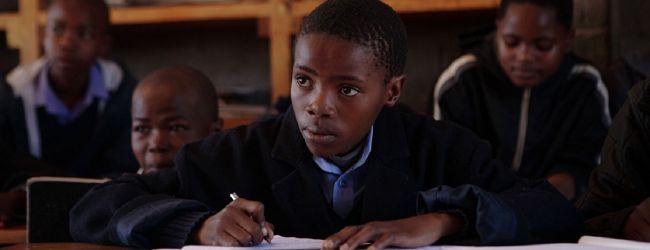Lesotho: public authorities must act on education unions’ concerns
EI: Education Ministry to “treat the teachers’ concerns with the urgency they deserve”
In his letter dated 1st August and addressed to His Excellency Hon. Prof. Ntoi Rapapa, Lesotho’s Minister of Education and Training, Education International (EI) General Secretary David Edwards stated that “the Lesotho Association of Teachers (LAT) and the Lesotho Teachers' Trade Union (LTTU) have informed me that in spite of assurances given by your Ministry, many of their legitimate demands remain unaddressed”
These concerns include the payment of salaries, pensions and allowances; vacancies issues, appointments, transfers and training opportunities; as well as the delayed payment of utility grants, unreasonable teacher-pupil ratios and the availability of textbooks for some schools.
Edwards urged the Ministry “to treat the teachers’ concerns with the urgency they deserve”, and include in consultations the LAT, LTTU and the Lesotho Schools Principals Association (LeSPA) “to ensure full representation of all stakeholders in the review of teacher salaries in line with academic and professional qualifications”.
Edwards encouraged the Minister’s office to implement the 1966 ILO/UNESCO Recommendation concerning the Status of Teachers, which sets out the norms and standards of decent work for education personnel as a means of respecting teacher rights while protecting the right to education.
Education unions: “deeply ashamed and humiliated” after “several futile and fruitless meetings” with public authorities, go on strike.
On 2 and 3 August, educator unionists from LAT, LeSPA and LTTU went on strike.
“Pay all arrears!”, “Teaching materials for all schools!”, “No multi standards in primary schools”, “Promote qualified teachers!”, or “No performance contracts for principals!” are some of the slogans that could be read on their placards.
In a petition to the Education Minister following “several futile and fruitless meetings” with his administration, LAT and LTTU denounce the Ministry of Education and Training’s (MOET) lack of cooperation with the trade unions in the making and implementation of certain crucial decisions directly affecting school leaders and teachers in the teaching service, as well as the MOET enforcement of decisions without firstly consulting and engaging with the concerned stakeholders, including teachers’ trade unions.
They add that they feel “deeply ashamed and humiliated by our ministry” for sending national security services agents to monitor our trade unions leaders’ schools after the 24 October’s joint press conference, and believe that this is clearly in contradiction with the 2010 Education Act of 2010.
Educators’ main demands
Among the teacher unions’ key demands:
· Salaries to be paid (on time), as it is a teachers’ legal right as MOET employees;
· Immediate payment of long overdue teachers’ salaries and/or arrears by the ministry;
· Progress report to be given by the ministry on how long will it take before acting positions (principals, deputy principals and heads of departments) will be filled and remunerated;
· Overall review of the 2009 teachers’ salary structure, which has failed to keep up with the rate of inflation.
· Speedy distribution of utility grants to primary schools
· Payment of gratuity to principals whose performance contracts have expired (regardless of their age), including those who retired after the expiration of their performance contracts.
· Announcement of a proper gratuity payment strategy for principals whose contracts are yet to expire and a clear strategy to hire them on a permanent basis;
· Provision of relevant teaching and learning materials for effective implementation of the new curriculum in both primary and secondary schools; and
· Recognition of special education qualifications.
EI will continue to monitor the situation in Lesotho closely and support the positions of teacher unions in the country.

[Mon, 06 Aug 2018 11:20:00 +0000] | DIGG THIS
Education International · No. 3 Torshie Close, · Mempeasem · East Legon Extension · Accra · Ghana
Phone: +233.302.50.12.00 · Fax: +233.302.50.66.81 · Email: eirafoffice@ei-ie.org
